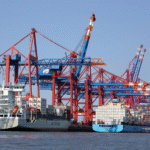In an unprecedented move startling the tech world, Google AI investment plans are blazing forward with a staggering commitment of $75 billion for 2025. Against increasing macroeconomic headwinds, regulatory issues, escalating legal battles, and tariff ramifications, Alphabet-the parent company of Google- has put their intent clear to most importantly fortify the establishment of their AI infrastructure and cloud computing superiority. The announcement, following an earnings beat that further uplifted sentiment among investors, pushed shares in Alphabet up by more than 4% after hours, reinforcing the confidence the market has in its AI-first approach.
Google’s Vision for AI Infrastructure: Building the Future
Alphabet’s battle plan for holding dominance on AI infrastructure is not only forward-looking; it is downright aggressive. The company is heavily investing in new data centers, the advancement of cloud computing, and next-gen AI infrastructure to power applications like Gemini. Sundar Pichai foresaw scalability; Google is now achieving four times as much computing power per unit of energy as it did five years ago.
Essentially, standing at the heart of that google AI investment is not just bluster; that is the true basis of enterprise transformation. With the surging demand for cloud computing and generative AI, Google intends to lead the conversion with innovative infrastructure that assures the AI infrastructure can cater to both AI training and inference in scale.
Navigating Tariffs & Macroeconomic Pressures
It is not tariff and regulatory changes alone that challenge the ever-daring path Alphabet is taking. New and rising tariffs—especially the removal of the de minimis exemption—pose threats to the advertisement spend of great APEC-based retailers. According to Google Chief Business Officer Philipp Schindler, such changes could hurt ad revenue, as companies like Shein and Temu are now likely to cut spending amid increased costs.
Forrester’s Nikhil Lai warns the tariff impact will likely be substantial. The change means top-line revenue could be affected since lowered international ad budgets will follow the tariff impact. The company, however, believes that in the near run, the returns derived from Google AI investment and the robust AI infrastructure will outweigh these temporary slowdowns.
Rising Costs, Legal Fights, But Firm Commitment
On the one side, Alphabet is seeing higher operating costs-again 9% YOY: up with excess R&D spending and legal fees; still on another, Alphabet is sharply focused on Google AI investment. The company now considers AI infrastructure an investment rather than an expenditure, one that appreciates exponentially. Its R&D spending over the past year increased by 14%, much of it related to compensation and investment in servers that it feels will support unprecedented growth in revenue through AI.
Google is confronted with a multitude of legal uncertainties, including the prominent antitrust case pertaining to its alleged monopoly over online advertising. Conversely, the firm continues investing in cloud computing and AI infrastructure as a global technological leader, while AI regulatory problems could warrant product divestiture, possibly Chrome.
Cloud Computing and the AI Arms Race
Across various broads when it comes to the tech industry at this time: AI infrastructure arms race. Google, for its efforts to contend with Microsoft, Meta, and Amazon- each planning spending above $60 billion in cloud computing and AI development–will put everything to the most aggressive plan so far at $75 billion. The true returns on this approach are boosted by the $12 billion generated by growing cloud computing revenues for Alphabet in Q4 2024, a 30% increase YoY.
Investors are taking note of this. The Google AI investment news was also reported simultaneously with the announcement of a $70 billion buyback plan from the tech giant. According to Will Rhind from GraniteShares, the evidence is that this proves that the AI trend hasn’t peaked. The clear message from Google is that the industry is excited to hear the AI infrastructure is just starting and that cloud computing will be its main growth driver.
For More Trending Business News, Follow Us 10xtimes News






